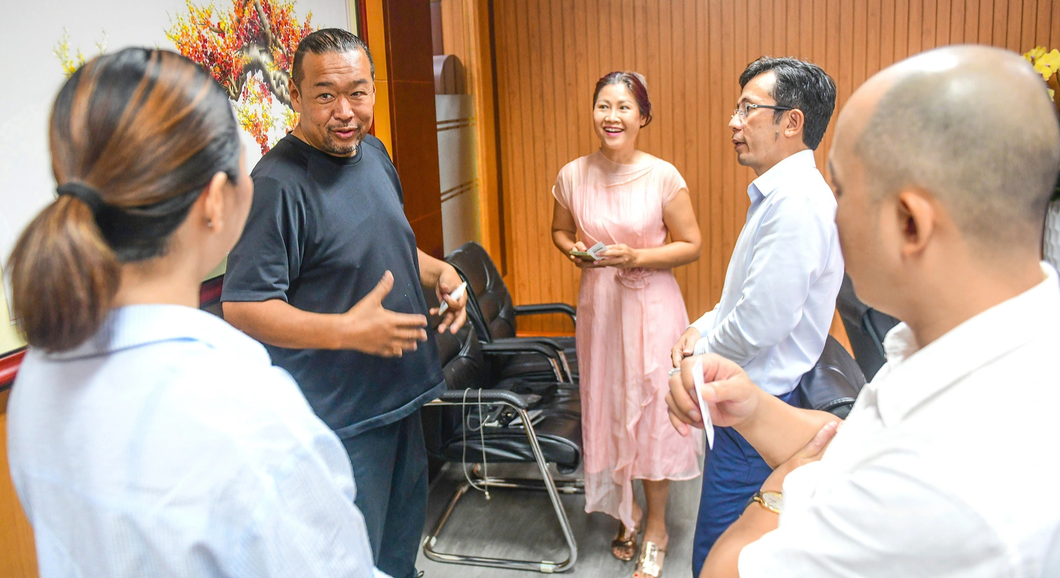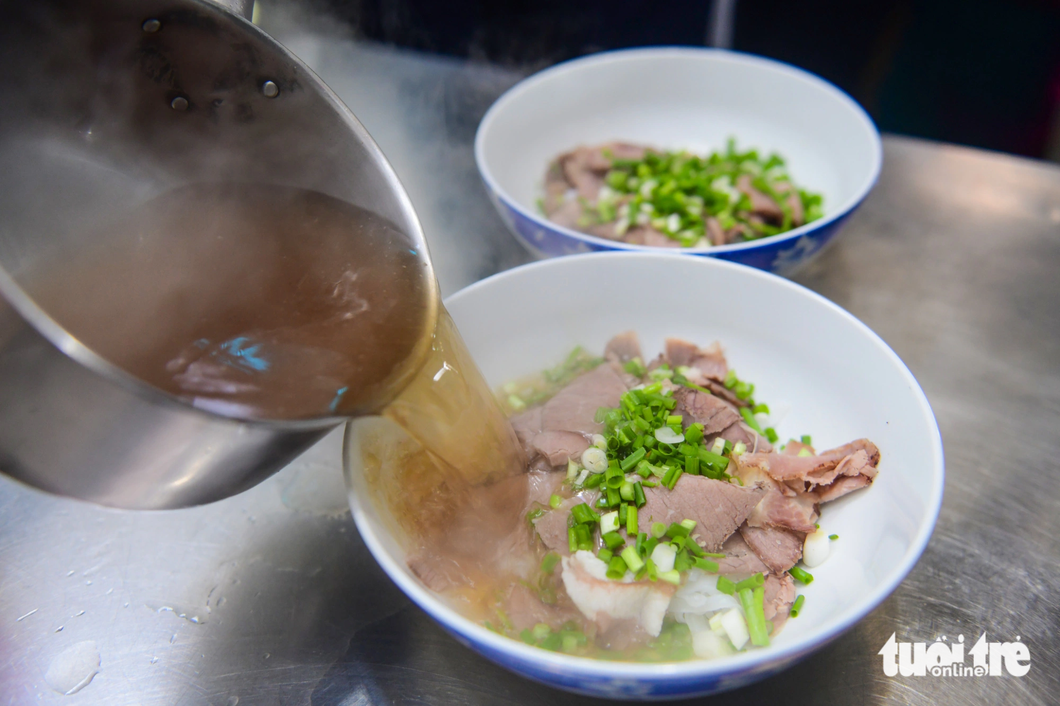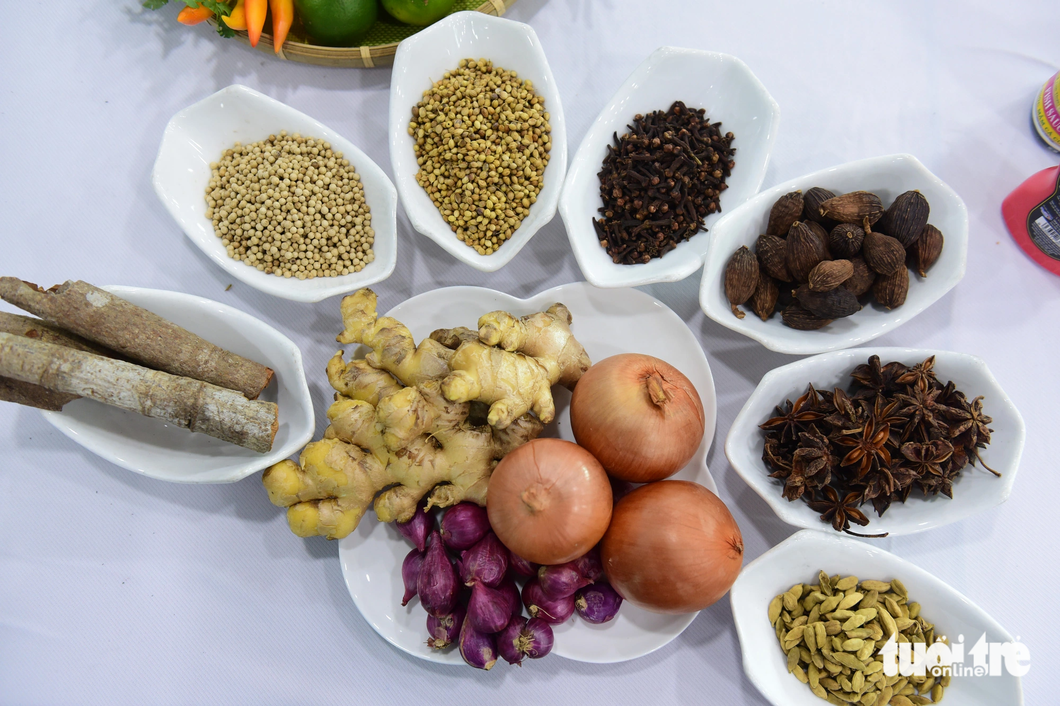Although there are numerous Vietnamese restaurants in Japan that serve pho, the authentic and robust flavor of traditional Vietnamese street pho is often lacking. This can be attributed to a limited availability of necessary ingredients and differing culinary preferences among Japanese patrons.
Tomoyuki expressed his observation of the shared cultural values between the Japanese and Vietnamese people. He highlighted the significance of “pho” in Vietnamese culture and stated that it is a well-known and beloved dish among all Japanese individuals.
One possible reason for the widespread popularity of pho among the Japanese is the close affinity they have for rice, which is a staple in their daily diet. Moreover, pho noodles, a key ingredient in pho dishes, are created from rice, further accentuating its appeal to the Japanese palate.
Some notable attractions of this cuisine include its reputation for being nutritious and its mild flavors, which set it apart from other cuisines. Additionally, pho is often regarded as a healthy choice for diners.
 |
| Matsuo Tomoyuki answers questions from Vietnamese ‘pho’ restaurant owners about their experience preparing food in Japan. Photo: Quang Dinh / Tuoi Tre |
Tomoyuki shared that he frequently patronizes Vietnamese eateries to indulge in flavorful noodle soups, such as pho, as they are both delicious and easily digestible.
A serving of pho is comprised of a savory broth, delicate rice noodles, fragrant herbs, and typically features beef or chicken as the main protein.
Ramen, a popular Japanese dish with its roots in China, is made from a combination of broth, noodles, herbs, and meat. Like pho, the flavors of ramen vary by region.
When it comes to ramen, the most popular styles include Sapporo, Hokkaido, and Fukuoka. These styles are widely known for their delicious flavors and rich broth. On the other hand, pho lovers often prefer the Ho Chi Minh City and Hanoian styles. These styles of pho are renowned for their unique taste and authenticity.
At the Vietnam Pho Festival, various Vietnamese pho brands will be presenting an array of unique pho flavor profiles.
“We should never compromise when it comes to food. Instead, we should embrace our own individual styles and narratives,” stated Tomoyuki. He added that every variation of pho has its own distinct tale waiting to be explored by diners.
 |
| ‘Pho’ Dau in Ho Chi Minh City. Photo: Quang Dinh / Tuoi Tre |
Tomoyuki is not only planning to showcase pho at the festival, but he also intends to demonstrate the process of making pho noodles and cooking the dish.
“I would like to introduce the Japanese community to the exquisite Vietnamese dish, pho. My goal is to familiarize them with the art of preparing and harmonizing ingredients such as anise, cinnamon, cardamom, beef, and beef bones. Furthermore, I aim to educate them on the intricate process of making authentic pho noodles,” he expressed.
 |
| ‘Pho’ spices. Photo: Quang Dinh / Tuoi Tre |
The Vietnam Phở Festival commemorates the seventh edition of the ‘Day of Pho’ (December 12), which is organized every year by Tuoi Tre newspaper.
This year’s event is jointly organized by Tuoi Tre and Saigontourist Group, in collaboration with the Vietnamese Embassy in Japan, the Vietnamese Ministry of Foreign Affairs, the Vietnam-Japan Friendship Association, and various Japanese partners.
Three renowned chefs who have each won the prestigious ‘Hoa Hoi Vang’ (Golden Star Anise) award, namely Nguyen Tien Hai, Nguyen Tu Tin, and Pham Quang Duy, are confirmed to be among the distinguished participants of the upcoming Vietnam Phở Festival 2023.
The prestigious Hoa Hoi Vang award is presented annually during the Day of Pho celebration to recognize and honor talented pho chefs from all regions of Vietnam.
The following restaurants will be participating in this year’s event: Pho Dau, Pho Hai Thien, Hotel Majestic Saigon, Pho Phu Gia, Pho’S, Sen SASCO, Pho Ta, Binh Tay Food, Pho VGCC, and Pho Thin Bo Ho.
The festival will be presented in collaboration with a number of esteemed partners including Vietnam Airlines, Suntory Beverage & Food, Southern Airports Services Joint Stock Company (SASCO), Dai-ichi Life, Simply Food, and ALSOK.
 |









